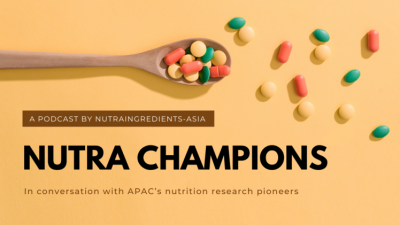Instagram posts by nutrition brands under fire for lacking in quality and accuracy – Aussie researchers

Posts from fitness coaches and lifestyle influencers fared better than brands, while those from nutritionists are the best of all. Still, most of the posts from nutritionists were rated as either “good” or “mediocre”, without any identified as “excellent”.
Said to be a study first-of-its-kind on nutrition-related content posted on Instagram, the research was conducted by Deakin University and findings were published on International Journal of Behavioural Nutrition and Physical Activity.
Instagram was selected for the research as it was the third most popular social media platform in Australia, and the fifth most visited website globally in 2021 – the year when the research was conducted.
Nutrition was also one of the most frequently discussed health topics on Instagram, the researchers pointed out.
In this study, they assessed nutrition-related content posted on Instagram by Australia-based accounts who had at least 100,000 followers between September 2020 and September 2021.
These accounts have a minimum of 100 posts and a minimum of 25 per cent of their content relating to nutrition.
A total of 676 posts were evaluated for quality, while 510 were evaluated for accuracy from a total of 47 Instagram accounts. Each account had 314,817 followers on average.
Information of the IG accounts
Most of the 47 Instagram accounts, 22 of them, were operated by brands, which were mostly posts on supplement products.
Another nine accounts were from fitness coaches, eight from lifestyle influencers, and eight from nutritionists.
Out of the 676 posts evaluated, 48.5 per cent were from brands, which mostly talked about supplements (63.4 per cent), 15.2 per cent were about foods or nutrients and health, 10.1 per cent were about weight loss, and the remaining on sports or exercise nutrition and general healthy eating.
For fitness coaches, most of their posts were about weight loss, while general healthy eating was most talked about by lifestyle influencers and nutritionists.
Overall, the most common topic discussed in the posts were on supplements (36.4 per cent), followed by foods or nutrients and health (17.2 per cent), general healthy eating (16 per cent), weight loss (13.5 per cent), sports or exercise nutrition (6.7 per cent), paediatric nutrition (4.9 per cent), and others (5.5 per cent).
Quality of the posts was assessed using the Principles for Health-Related Information on Social Media tool.
Accuracy, on the other hand, was assessed against information contained in the Australian Dietary Guidelines, Practice-based Evidence in Nutrition database, Nutrient Reference Values and Metafact.
Metafact is a website that enables the public to ask questions and are answered by verified PhDs, researchers, and medical specialists.
Most posts “mediocre”, brands fared worst
Most of the posts were rated as “mediocre” (59.2 per cent), 34.8 per cent were assessed to be “poor”, only 6.1 per cent were rated as “good”, and none were of “excellent” quality.
Also, 44.7 per cent of the posts contained inaccuracies.
Across the board, posts from brands fared worst in both quality and accuracy.
There was no post rated as “good” from brands, over half (52.7 per cent) were rated as “mediocre”, and 47.2 per cent as “poor”.
Nutritionists fared the best out of all, with 28.3 per cent rated as “good”, 71 per cent as “mediocre”, and 0.7 per cent as “poor”. Posts from nutritionists also scored higher accuracy scores.
Seven out of 10 posts from nutritionists were assessed to be “completely accurate”.
Only about four out of 10 were said to be “completely accurate” for those from brands, while both lifestyle and fitness coaches were in the middle with about six out of 10 posts identified as “completely accurate”.
Overall, 44.7 per cent posts “contained inaccuracies”, 8.6 per cent were “completely inaccurate”, 14.3 per cent were “mostly inaccurate”, 21.8 per cent were “mostly accurate”, and 55.3 per cent were “completely accurate”.
Also, posts on supplements had lower odds of receiving a higher accuracy score compared to posts containing information about weight loss, sports/exercise nutrition, foods/nutrients and health, and general healthy eating.
“The inaccurate and poor-quality information about supplements and posted by Australian brand accounts observed in this study may indicate that exaggerated information may be used as a marketing tactic on Instagram,” said the researchers.
Engagement
Fitness coaches have the highest number of posts engagement, followed by lifestyle influencers, and nutritionists.
Brands had the lowest engagement although despite having posted more content.
Engagement was calculated as the total number of likes and comments for each post.
Engagement also tended to be higher for posts of lower quality, as did engagement rate, said the researchers.
“Nutrition-related information published by influential Australian Instagram accounts is often inaccurate and of suboptimal quality.
“Information about supplements and posts by brand accounts is of the lowest quality and accuracy and information posted by nutritionists and dietitians is of a higher standard,” they concluded.
Source: International Journal of Behavioural Nutrition and Physical Activity
#Fail: the quality and accuracy of nutrition-related information by influential Australian Instagram accounts
https://doi.org/10.1186/s12966-024-01565-y
Authors: Denniss, E., Lindberg, R., Marchese, L.E. et al.



















